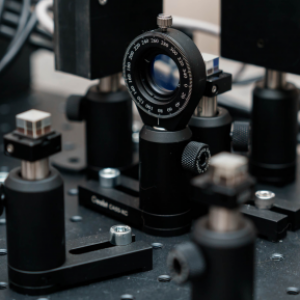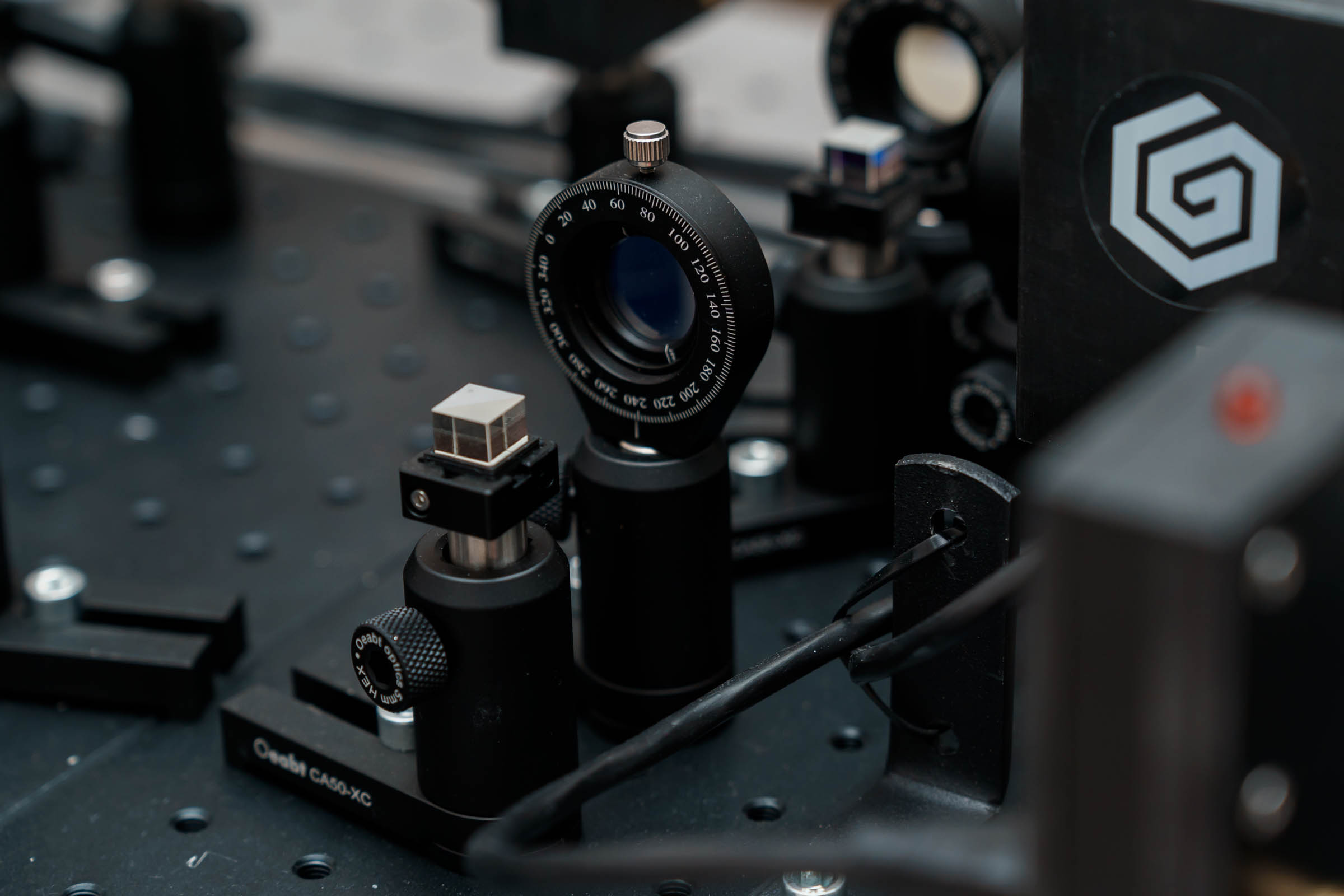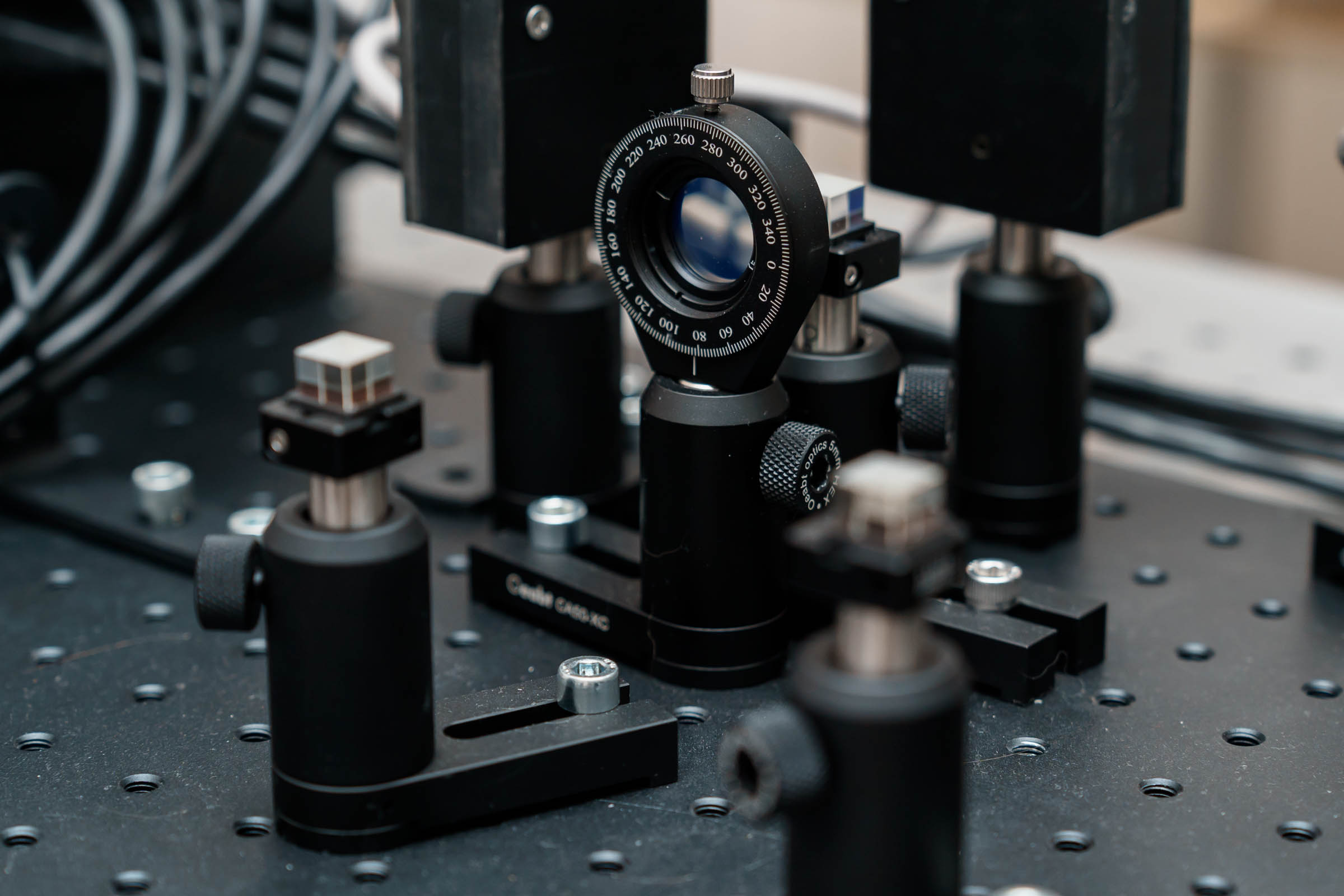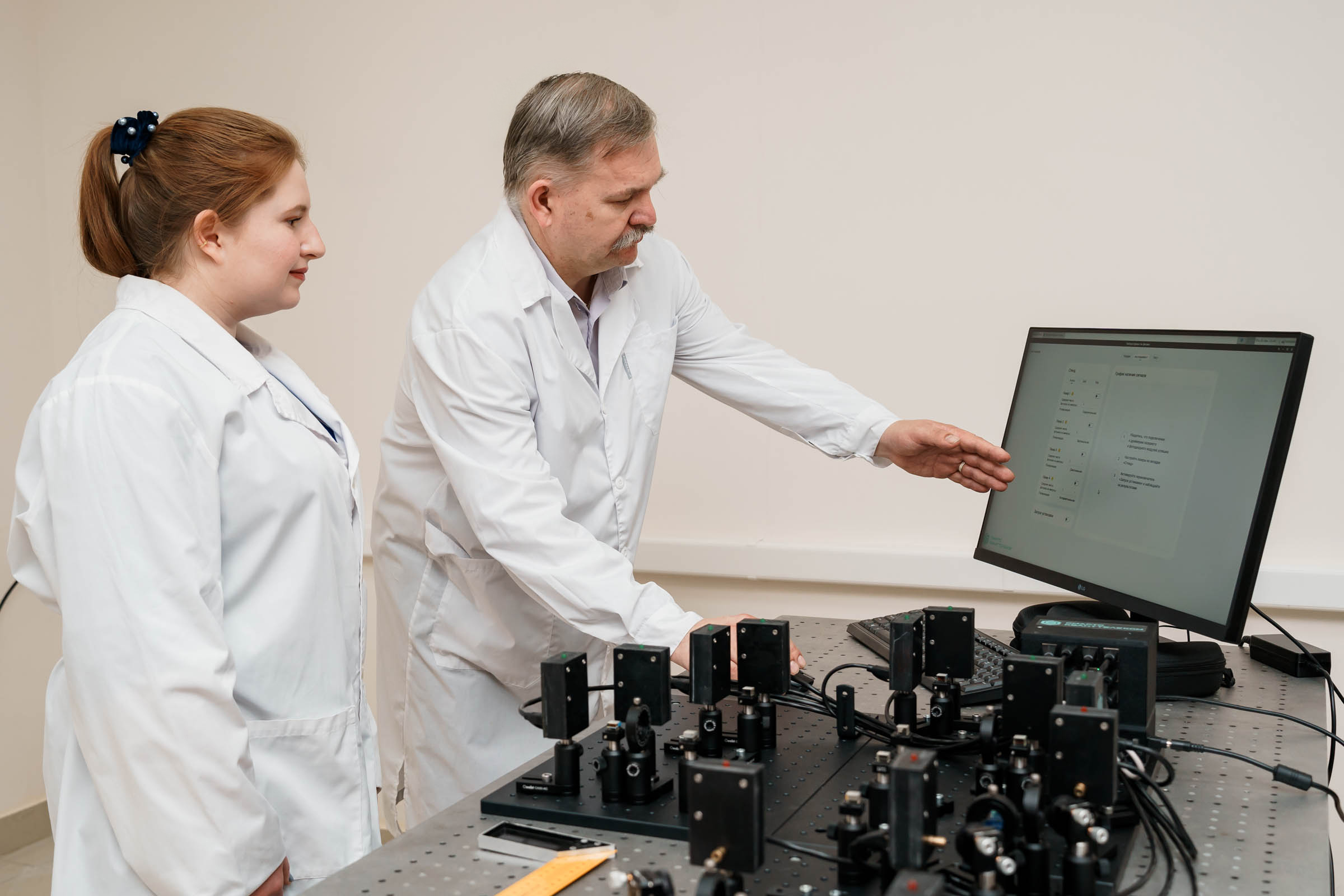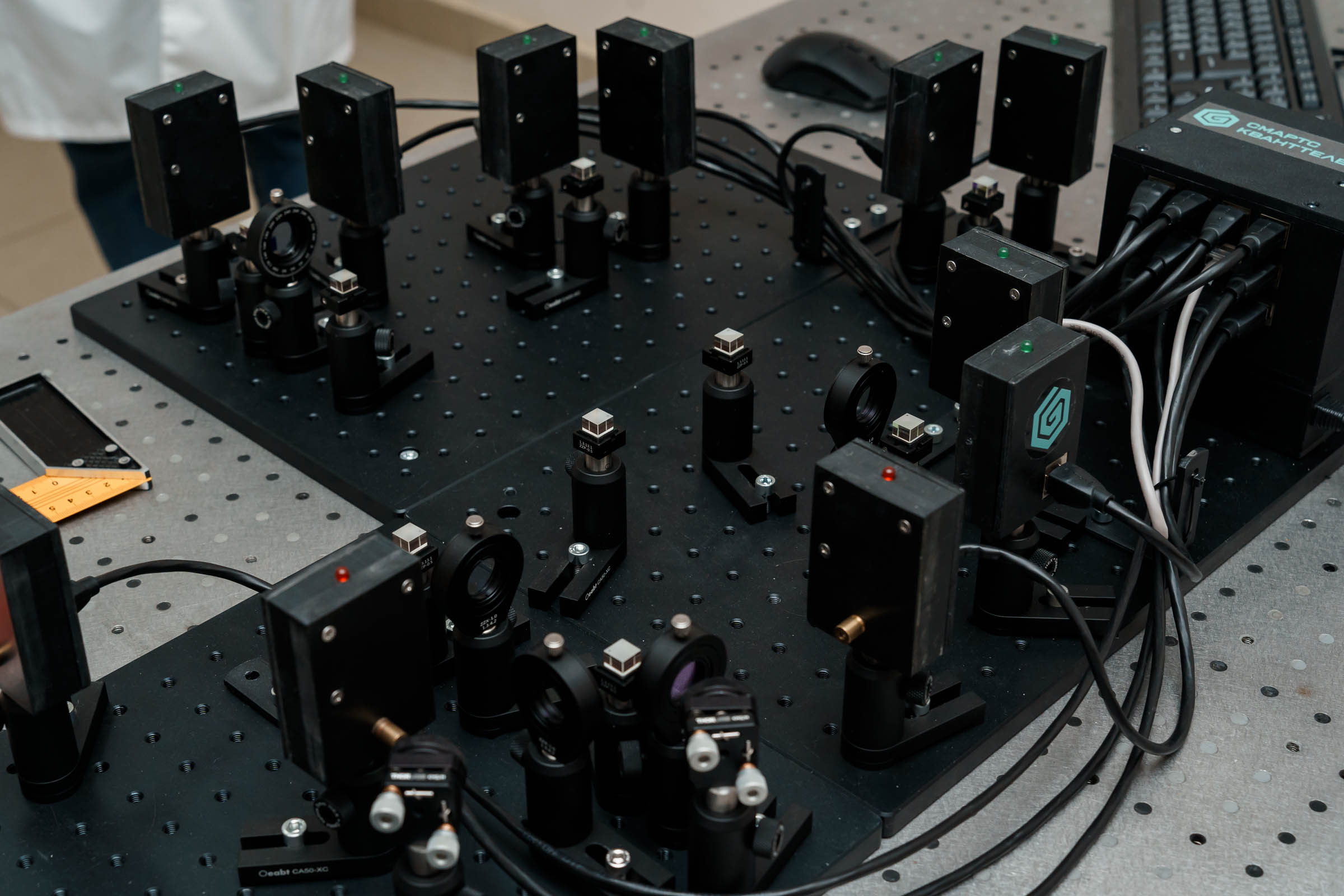Samara University joined the Inter-university Quantum Network (IUQN), becoming the fifth Russian university to join this project as a subscriber to the network. This quantum network unites a number of leading universities and scientific organizations in Russia and should become an important infrastructural testing ground for testing and developing quantum communication technologies in our country, allowing us to create communication channels with information protection at the physical level. Such closed communication lines are necessary, first of all, for government agencies, data processing centers (data centers), critical infrastructure facilities, major transport companies, and industrial enterprises.
"Samara University became the fifth Russian university to join the Inter-university Quantum Network. Five universities from Moscow, St. Petersburg and Nizhny Novgorod are currently participating in this project with us. The project is implemented by the Kurchatov Institute National Research Center, which ensures the operation of the network. Our University has special telecommunication equipment installed, it is connected and operating normally. In the near future, it is planned to conduct scientific research on the specifics of the practical application of telecommunication systems with quantum information protection. Samara University has significant competencies in the field of optical information technologies," said Vladimir Paveliev, Doctor of Physical and Mathematical Sciences, Head of the Department of Nanoengineering at Samara National Research University.
As the scientist explained, a quantum network is a closed communication system in which information is protected not by some complex cipher, but at the physical level, using the fundamental laws of quantum physics. Data in a quantum network transmitted by photons, that is, light quanta, is protected using the so-called quantum key distribution method. This method is based on a well-known physical principle: the state of a photon can be measured only once, after which it irreversibly changes.
It's like a film in a classic non-digital camera — if you pull it out into the light, it will be illuminated, you won't be able to print photos from it, moreover, it will immediately become clear that someone tried to gain unauthorized access to the film. Once in the wrong hands, the quantum key instantly changes its photonic "grooves", and it becomes impossible to open the quantum "lock" with its help, the key, as experts say, becomes compromised.
A quantum communication channel usually consists of two fiber-optic lines: one transmits information, and the other sends a key in the form of low-photon radiation with a certain state of photons. As physicists say, 20 years ago this technology looked like fiction, but now it's just reality. It is clear that the practical implementation of quantum communications is fraught with its own problems, which, when operating quantum networks, will need to be learned to cope with, which is what Russian scientists will do in the IUQN.
For example, quantum networks are sensitive to temperature fluctuations, and our climate is quite contrasting sometimes. In addition, difficulties arise when transmitting a quantum signal over long distances: to get rid of the effects of interference and power loss, the signal must be amplified using so-called repeaters. However, each such amplification node on the communication line carries a potential threat of network hacking and disclosure of the transmitted information. The goal of the researchers is to minimize these risks by developing the most secure repeaters.
The equipment used by the university to connect to the IUQN is of domestic production, it was developed and manufactured by the enterprises of the SMARTS group of companies. In addition to communication equipment, the University also has a unique training bench on quantum technologies, developed by SMARTS-Quanttelecom. The bench, named "Superquant", was acquired by the University as part of the "Priority 2030" program.
"At this bench, students can visually study the physical principles of information security using quantum key distribution. Laboratory work and experiments can be carried out here. It should be emphasized that the purpose of the Inter-university Quantum Network project is not only the testing and further development of quantum technologies, conducting scientific research and experiments. Perhaps the most important component of this project is educational, it is the education and training of future specialists in the field of quantum communications," Vladimir Paveliev emphasized.
Samara University has been teaching bachelors in quantum communications since September 2024, and it is also planned to open a new master's degree program in Quantum Communications and Integrated Photonics in 2025. In addition, the University is currently preparing a program of further vocational education in quantum communications for employees of industrial and transport enterprises.
"Both of these educational programs – bachelor's and master's degrees – have been developed within the Applied Mathematics and Physics (AMP) field. This is not an engineering field, but rather a research one. Educational programs have been developed and implemented jointly with the specialists of the SMARTS group of companies. Our task is not to train equipment operators, but specialists who would be able to improve existing technologies and develop new ones, including a new element base and hardware and software. By the way, many of our domestic scientists working in the field of quantum communications consider the Inter-university Quantum Network as a future base, the foundation for the development of the quantum Internet in Russia, with distributed computing on quantum computers and a distributed network of quantum sensors. So far, the idea of a quantum Internet looks fantastic, but let's not forget that not so long ago, quantum networks also seemed fantastic," said Vladimir Paveliev.
For reference
In November 2024, Samara University has entered the scientific and educational consortium on development and application of inter-university quantum network. The relevant agreement was signed at IV Congress of Young Scientists. Other members of the consortium include the Kurchatov Institute Research and Development Center, the National Intellectual Development Fund for Students, Postgraduates and Young Scientists (part of Innopraktika), and M.V. Lomonosov Moscow State University, Moscow Technical University of Communications and Informatics, Lobachevsky Nizhny Novgorod State University, ITMO National Research University in St. Petersburg, and Kazan Scientific Center of the Russian Academy of Sciences.
Photo by: Olesya Orina
